11 September 2019
No one-size-fits-all approach to predators that plunder turtle nests.
Protecting the nests of marine turtles from raids by pigs, dingoes and goannas requires species-specific management strategies, according to new research by Eric Norberg and colleagues.
Nest predation is one of the most significant threats to marine turtles. Over six months, the researchers recorded all attempts by predators on the nests of flatback and olive ridley turtles along a 48-km stretch of beach in Queensland’s western Cape York Peninsula.
Nest predation is one of the most significant threats to marine turtles.
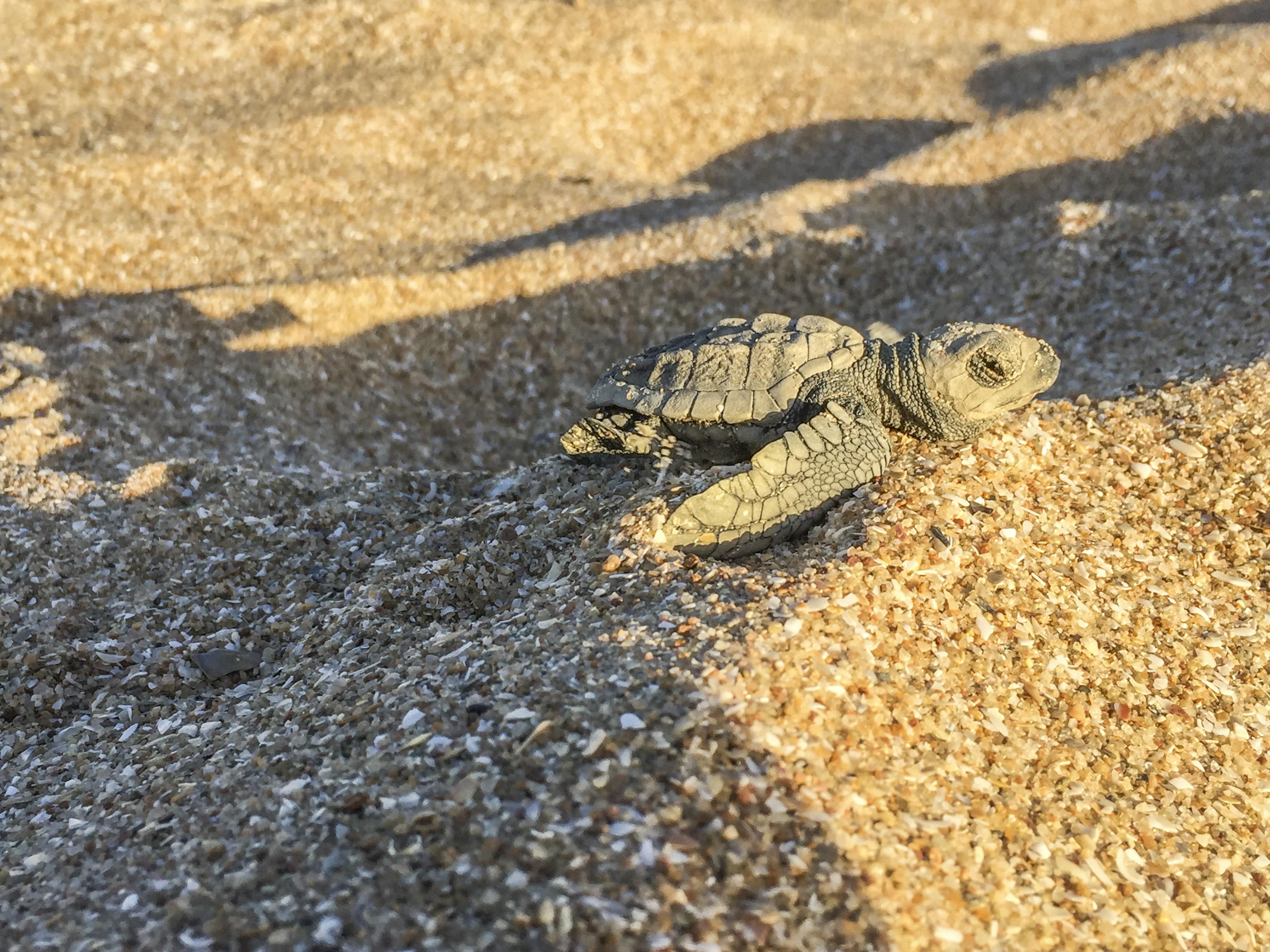
They found that dingoes were less likely to dig down to the egg chamber of olive ridley nests when they were covered with squares of plastic mesh, but this did not deter goannas or feral pigs. Even though pigs raided fewer nests than dingoes or goannas, they alone consistently devoured every egg within a chamber.
The research, which is part of a larger Hub project led by Dr Justin Perry of CSIRO in partnership with Indigenous rangers from Aak Puul Ngangtam (APN Cape York), shows that efforts to minimise the depredation of marine turtle nests must be based upon local data and adapted to the predators present. The integration of science, monitoring and management has informed targeted feral pig control that has led to a 95% reduction in feral pig depredation on the beaches managed by APN.
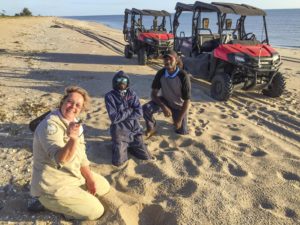 Turtles survey team on Cape York beach, photo by Gina Barnett. |
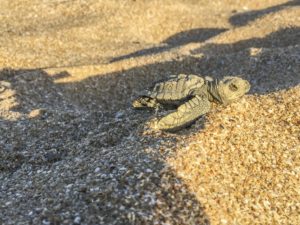 Hatchling makes its way out of a nest, photo by Gina Barnett. |
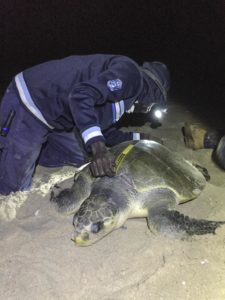 Turtle measurements are essential to improving our understanding, photo by Gina Barnett. |
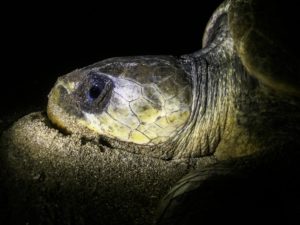 Turtle data is collected at night, photo by Gina Barnett. |
 Rangers at work on Cape York, photo by Gina Barnett. |
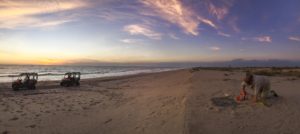 Cape York, photo by Gina Barnett. |
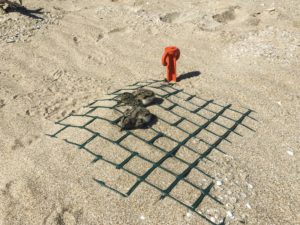 Mesh protects hatchlings and doesn’t alter habits of other animals, photo by Gina Barnett. |
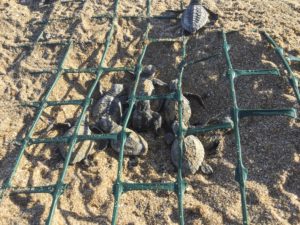 Mesh protects turtle hatchlings from predation but still enables them to head for the ocean, photo by Gina Barnett. |
Want to know more about the Resilient Landscapes Hub's activities and our research into practical solutions to environmental problems? Stay informed about activities, research, publications, events and more through the Hub newsletter.
"*" indicates required fields